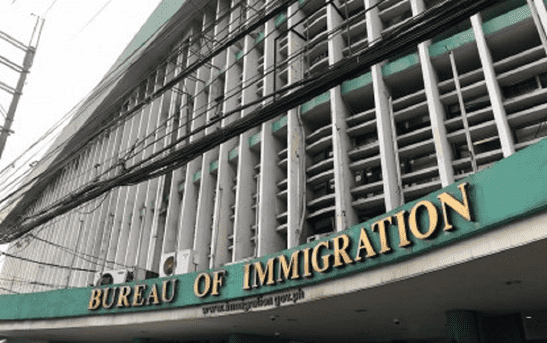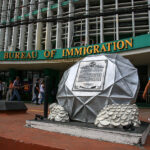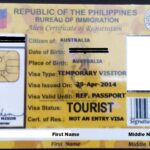Why Form a Business in the Philippines?
The Philippines’ growing economy, strategic location, and large English-speaking population make it an appealing destination for foreign investors. The government encourages foreign participation through incentives, special economic zones, and streamlined business registration processes.
Foreign entrepreneurs benefit from access to ASEAN markets, investment protection under bilateral treaties, and increasing digital infrastructure. However, business formation must navigate the complex interplay of national laws, foreign ownership restrictions, and regulatory agencies.
Key Legal Business Structures for Foreigners
Choosing the right business structure is the primary step in forming a company in the Philippines. Foreigners commonly choose one of the following:
- Domestic Corporation: A separate legal entity, often requiring a minimum foreign ownership share of 40% for most sectors, while some sectors are restricted to 40% or less foreign equity due to the Foreign Investments Negative List (FINL).
- Branch Office: An extension of a foreign company authorized to conduct business but not as a separate legal entity. Requires at least US$200,000 capital (or more, depending on sector).
- Representative Office: Limited to promotional and market research activities; not allowed to earn income.
- Single Proprietorship: Typically, only available to Filipinos or permanent residents; foreigners generally cannot register under this category without special circumstances.
Each type has unique documentation, capital, and operational requirements governed by the Securities and Exchange Commission (SEC) and other agencies.
Foreign Ownership Restrictions and the Foreign Investments Negative List
Foreign investors must adhere to the Foreign Investments Negative List (FINL), which restricts foreign equity in certain sectors such as utilities, mass media, retail trade, and land ownership. For most other sectors, up to 100% foreign ownership is permissible if the business qualifies under special economic zones or incentive programs like the Board of Investments (BOI) or the Philippine Economic Zone Authority (PEZA).
The FINL is updated periodically, making it critical to consult the latest version before structuring ownership.
Minimum Capital Requirements
The minimum paid-up capital for corporations varies based on foreign equity:
- Up to 40% foreign ownership: Minimum capital is ₱5,000.
- More than 40% foreign ownership: Minimum capital of US$200,000 or its peso equivalent, unless the business qualifies for special incentives or employs at least 50 Filipino employees, lowering the requirement to US$100,000.
Branch offices have similar capital requirements. Businesses registered with BOI or PEZA may have reduced requirements depending on approved investments.
Step-by-Step Process to Form a Business in the Philippines as a Foreigner
The process of forming a business in the Philippines as a foreigner involves a series of coordinated steps to ensure legal compliance and smooth operations from the outset. Understanding each phase, from registering your business name to securing local permits and tax registrations, is essential for planning effectively and avoiding costly delays. This step-by-step overview will guide you through the necessary procedures to establish your business presence successfully in the Philippine market.
Step 1: Name Reservation at the Securities and Exchange Commission (SEC)
Reserve the unique business name via the SEC online platform. The name must not conflict with existing companies or trademarks.
Step 2: Secure Business Permits and Clearances
Prepare articles of incorporation or partnership agreements and submit them to the SEC for registration. Once SEC registration is approved, obtain a Barangay Clearance and Mayor’s Permit, and register with the Bureau of Internal Revenue (BIR) for tax identification and compliance.
Step 3: Capital Deposit Certificate and Bank Account
Deposit the required initial capital in a Philippine bank and secure a bank certification of capital deposit. This is required by the SEC and other agencies before final registrations.
Step 4: Register with Other Government Agencies
Register with government bodies such as the Social Security System (SSS), Philippine Health Insurance Corporation (PhilHealth), Pag-IBIG Fund, and Department of Labor and Employment (DOLE) for labor compliance.
Step 5: Obtain Necessary Industry-Specific Licenses
Depending on your business nature, additional licenses may be required, such as trade, environmental clearance, or import-export permits.
Common Challenges for Foreigners Starting Businesses in the Philippines
Starting a business in the Philippines offers great opportunities but also presents unique challenges, especially for foreign investors unfamiliar with the local regulations and cultural practices.
- Understanding sector-specific foreign ownership restrictions and agency-specific requirements.
- Meeting the capital requirements and sourcing proof of funds in PESO.
- Delays due to documentation errors or where authenticated foreign documents are needed.
- Navigating multiple government agencies with overlapping procedures.
- Hiring and complying with labor laws for foreign and Filipino employees.
Why Professional Help is Essential
Business registration complexities combined with cultural and regulatory differences can overwhelm foreign investors. Professional consulting services help:
- Clarify ownership structures and choices based on up-to-date laws and FINL.
- Prepare and authenticate documents properly, reducing delays.
- Coordinate with multiple agencies like the SEC, BIR, DOLE, and local government units.
- Provide continuous support for permits, registrations, and compliance.
Expert guidance ensures compliance, faster approvals, and saves critical resources.
Final Thoughts
Forming a business in the Philippines as a foreigner requires strategic planning, understanding legal boundaries, and knowing the procedural intricacies of government agencies. With a favorable investment climate, proper structure, and well-prepared documentation, foreign entrepreneurs can effectively enter one of Asia’s fastest-growing markets.
Professional assistance remains key to navigating this environment successfully and minimizing bureaucratic hurdles.
Need Expert Assistance to Form Your Business in the Philippines?
Work Visa Philippines offers end-to-end business formation services for foreigners, including company registration, capital compliance, legal advice, and immigration support for a 9G Visa or PEZA Visa. Our team streamlines every step, from name reservation to tax registration, so you can focus on growing your business. Contact us today for an initial consultation:
- Contact Us Here
- Fill Out the Form Below
- Call us at +63 (02) 8540-9623





